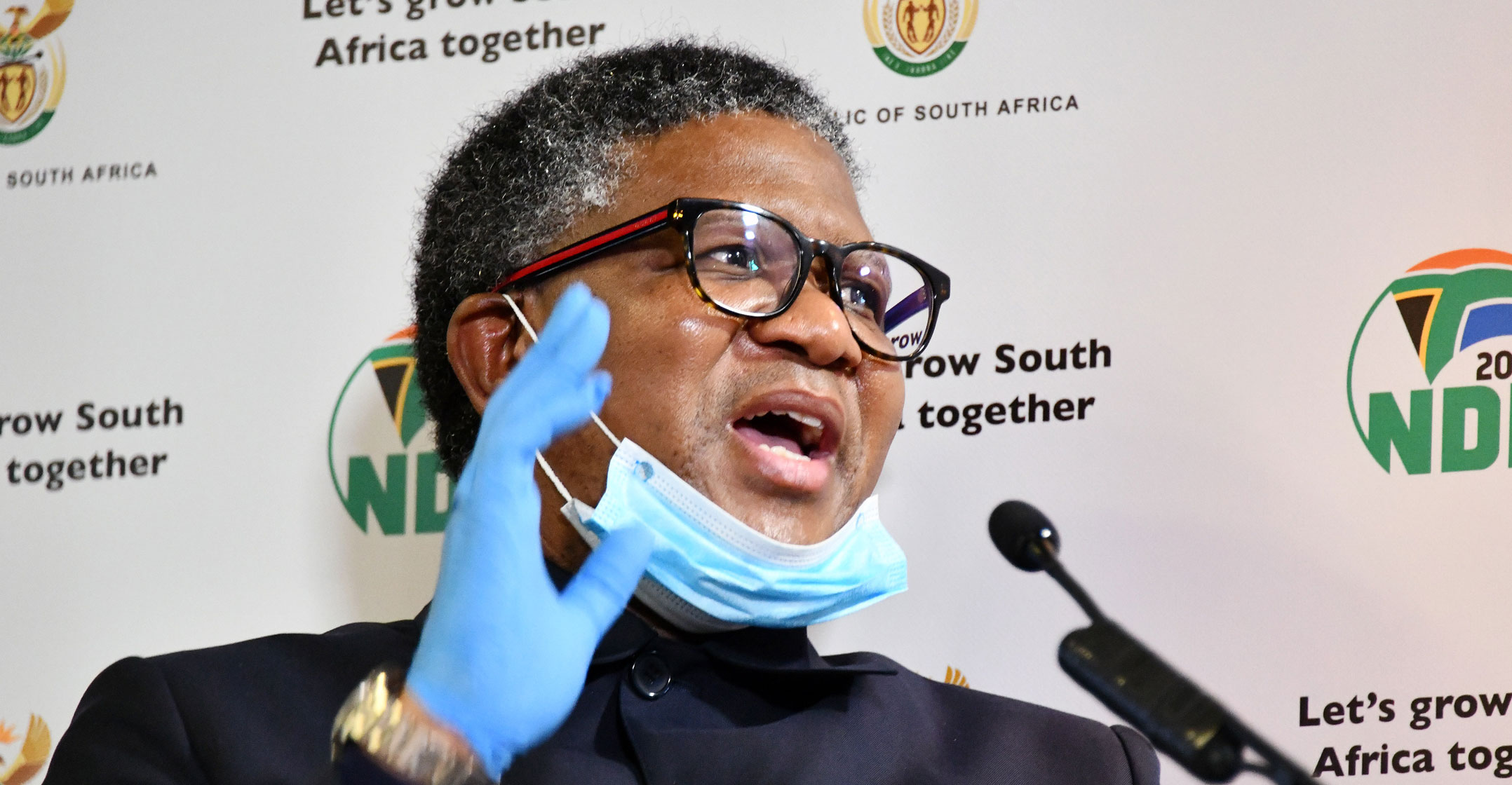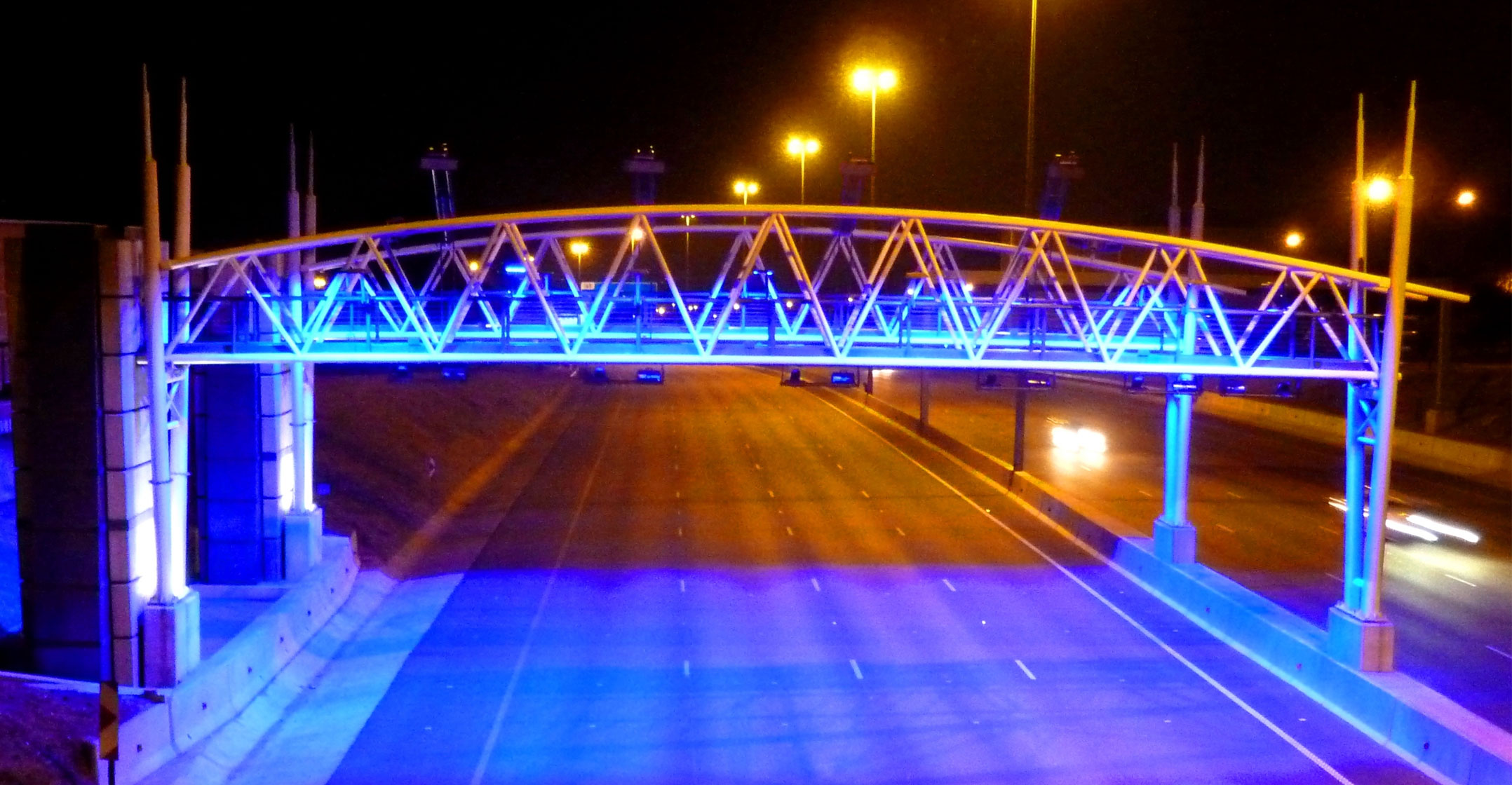
A final decision on the future of e-tolls on the Gauteng Freeway Improvement Project (GFIP) has not been taken by government. This is despite reported comments by transport minister Fikile Mbalula late last week that the e-toll system cannot be scrapped.
Mbalula’s comments have caused some confusion, with some people interpreting his comments as being the government’s long-awaited final decision on the future of the controversial scheme.
However, cabinet spokeswoman Phumla Williams said a final decision on the future of e-tolls has definitely not been made yet.
Williams said statements issued after cabinet meetings will list all cabinet decisions, but sometimes state that the relevant minister will hold a separate briefing – “especially if it’s a weighty decision”.
The latest annual report from roads agency Sanral has revealed that revenue from the GFIP decreased by 31.5% to R207-million in the year to end-March 2021 from R452-million in the prior year.
Sanral said this project is the only Sanral toll route that receives a government grant to offset the discounts on tariffs instituted in response to public opposition to tolling on Gauteng freeways.
“In 2020/2021, this grant amounted to R2.7-billion, which includes R2 3-billion that the minister of transport, as Sanral’s sole shareholder, approved as a transfer from non-toll to toll operations to reduce the expected shortfall in collection of revenue,” it said.
‘Material uncertainties’
Sanral added that government has indicated and shown its preparedness to provide financial support to the GFIP e-tolls project while a solution is awaited.
It said the agency has therefore included a budgetary transfer of R3.25-billion, excluding VAT, per annum over the medium-term expenditure framework ending in the 2022/2023 financial year to cover the shortfall on e-tolls.
“Even though final approval of this additional transfer from parliament is still awaited, based on past experience management concludes that it is inevitable that it will be granted to ensure that the entity does not default.
“The material uncertainties on the future of GFIP as a going concern on its own, are expected to be mitigated through direct government support and feasible sources of financing,” the agency noted.
There are no easy answers. All the options we have presented to government have very significant financial implications
It said gross toll debtors amounted to just over R9.7-billion, which was reduced by an accumulated expected lifetime loss allowance of around R9.6-billion.
Sanral said although the debt is not written off, the impairment reflects the expected losses and is assessed annually at the end of each reporting period.
It added that the inability to resolve the GFIP e-tolls issue continues to place significant pressure on Sanral’s balance sheet, compromising its ability to source funding and exacerbating uncertainty regarding the future of road funding.
Sanral CEO Skhumbuzo Macozoma last month told a Consulting Engineers South Africa (Cesa) Infrastructure Indaba that the impasse over the e-toll scheme and uncertainty about the financial viability of Sanral had resulted in the Sanral losing the opportunity to obtain R14-billion in funding for projects.
 Macozoma called on the government to “bite the bullet” and take a decision on the e-toll scheme on the GFIP.
Macozoma called on the government to “bite the bullet” and take a decision on the e-toll scheme on the GFIP.
“There are no easy answers. All the options we have presented to government have very significant financial implications and I think we must just make a decision.
“Bite the bullet and do so. There is not going to be an answer that is not going to affect South Africans in the pocket, including cancellation,” he said.
Gauteng MEC for public & roads infrastructure Jacob Mamabolo, in an interview with eNCA on Saturday, reiterated the official position of the Gauteng provincial government on e-tolls on the GFIP.
“We have clearly said that e-tolls must be scrapped. We still stand by that position. Nothing has changed in our position. We are firm on that. Why has it not been scrapped? This is a matter within the purview of national government.”
Organisation Undoing Tax Abuse (Outa) CEO Wayne Duvenage on Tuesday questioned why the government is sending “mixed messages” on the future of e-tolls and not taking a decision on the scheme.
Duvenage referred to all the discussions and promises in the past about a decision on e-tolls, that a decision would be announced by the end of March 2021, that it is imminent and yet month after month, the issue is not on the agenda of cabinet.
“But cabinet is still meeting on this thorny, long overdue issue. It just lowers the trust in government,” he said.
Duvenage stressed there are not any additional costs to Sanral if the e-toll scheme is scrapped because the e-toll management contract has expired, adding “in fact, there might even be a saving”.
Even less compliance
Outa has estimated that only about 15% of motorists using the GFIP pay their e-toll accounts.
Automobile Association spokesman Layton Beard said the lack of clarity on the future of e-tolls is causing fewer and fewer motorists to pay their e-toll accounts.
Beard said there is funding available through other channels and alternatives through which the GFIP roads can be maintained. He believed e-toll compliance was low because people have taken a principle view that they are not going to pay their e-tolls because they already pay taxes, already pay taxes on fuel and money should be available to maintain and improve the road infrastructure.
- This article was originally published by Moneyweb and is used by TechCentral with permission




